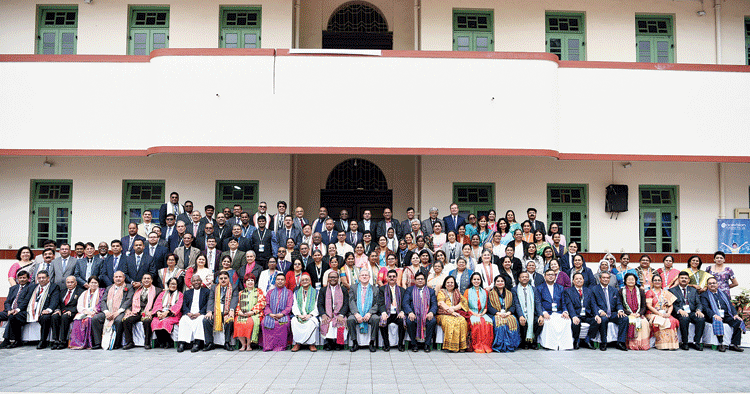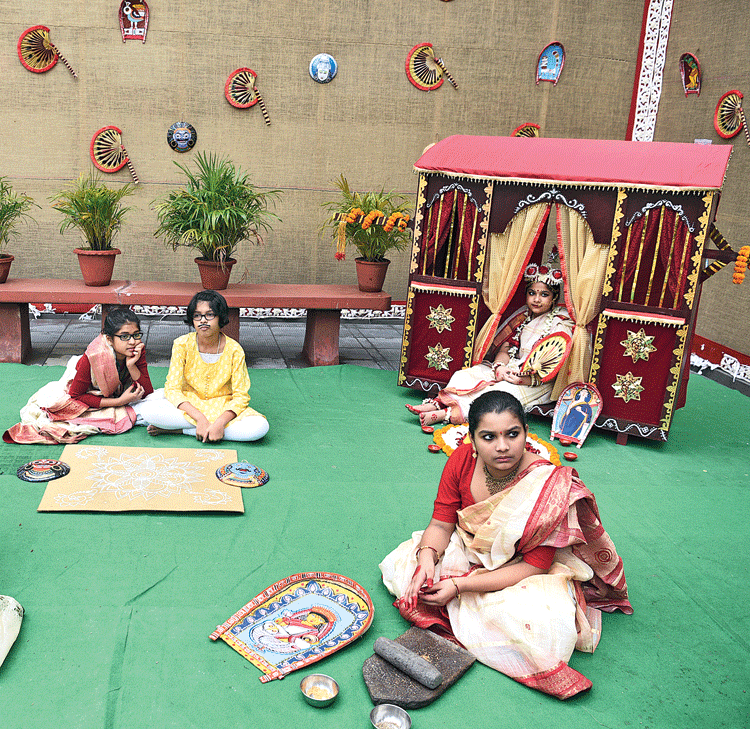
On the sidelines of the conference at Loreto House, students of the school present the culture of Bengal by depicting a village scene and displaying artefacts such as a terracotta horse from Bankura
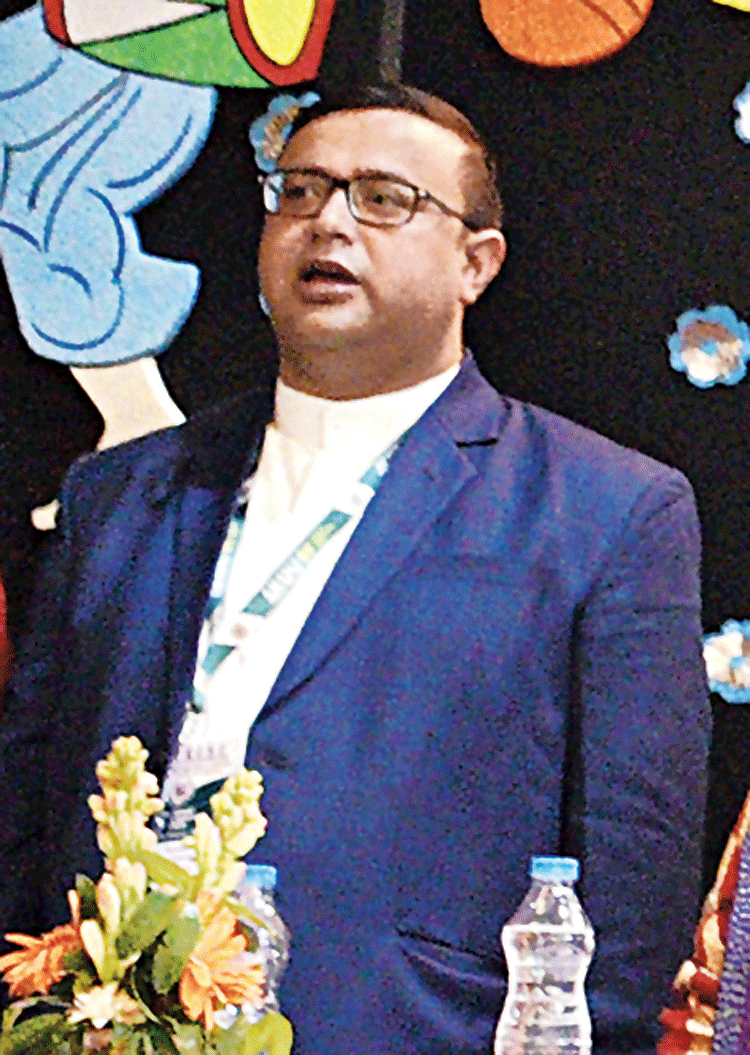
Father Rodney Borneo
The need to uphold India’s secular ethos and constitutional values came up repeatedly at the annual conference of the heads of Anglo-Indian schools from all over the country. Here is what some of them had to say
Representative of a school in western India
What are we teaching right now? There is violence in thought. When an organisation like the RSS happens to be the backbone of a government, what else can you expect? The organisation had no role in India’s freedom struggle. It stands for a majoritarian Hindu state. But India is India because of its secular ethos
Principal of a school in Calcutta
If something (Indian Constitution) has worked so well for 69 years, why do you need to amend it? This change is not an isolated thing. It can open the floodgates for a series of majoritarian policies. You cannot see the CAA and NRC in isolation. You have to see them in unison
Principal of a school in Uttar Pradesh
The district I come from is infamous for atrocities against women. Instead of doing anything about it, the government is focussed on a clampdown on dissent. This will only increase turbulence and make the country more divisive
Principal of a school in north Bengal
There is a trend of targeting and attacking schools even at the drop of a hat. We have seen ghastly pictures of churches being destroyed
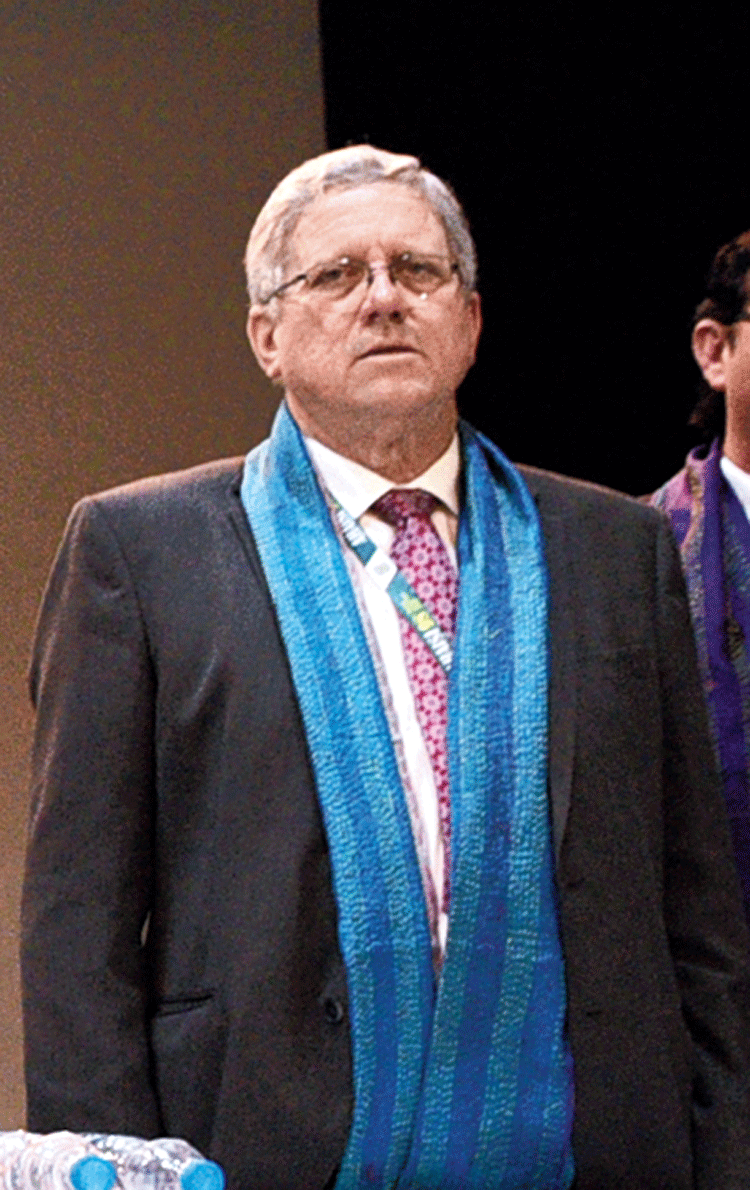
David Hilton
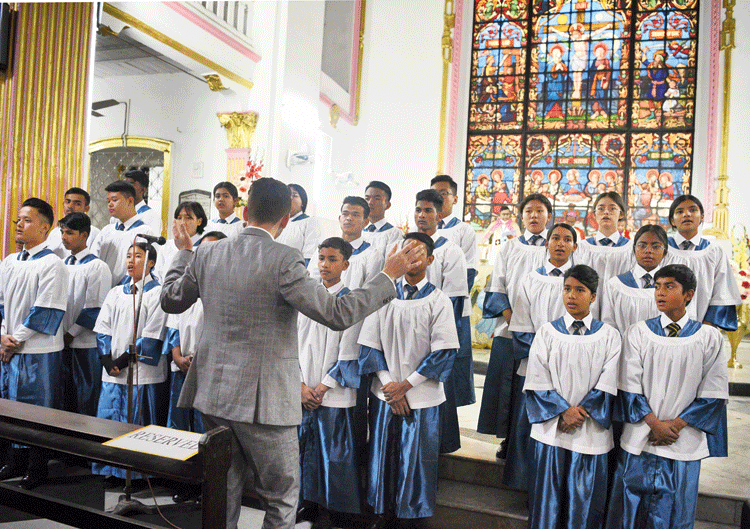
The choir from Dr Graham’s Homes, Kalimpong
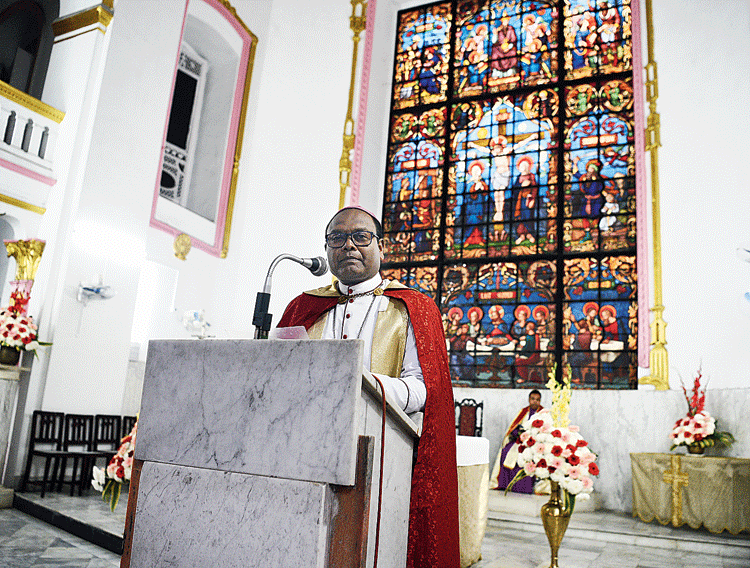
The Most Reverend Vincent Aind at the Church of St Thomas The Apostle
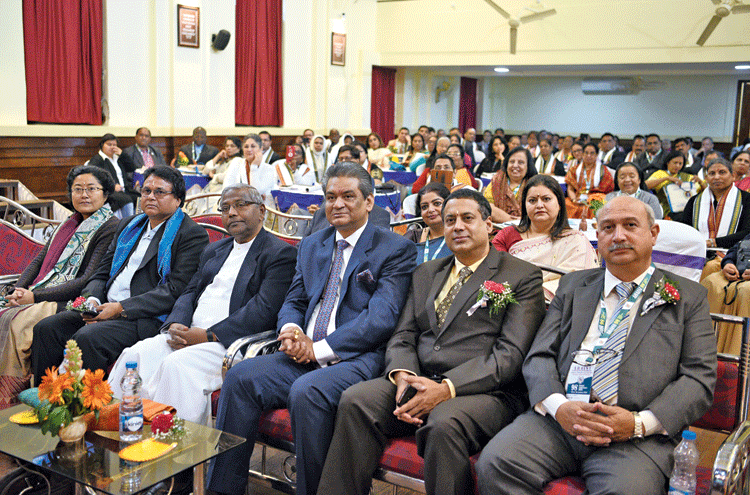
(From left) Sister Sabrina Edwards, provincial of Loreto Sisters, South Asia; Father Moloy D’Costa, secretary of West Bengal Association of Christian Schools; Father Felix Raj, vice-chancellor, St Xavier’s University; and Michael Shane Calvert, MLA representing the Anglo-Indian community in the Assembly
David Hilton
Secretary and treasurer of association
Every Anglo-Indian school is a microcosm of the Indian society. A significant contribution of Anglo-Indian schools has been their policy of absorbing students representing different communities, languages and religions and thereby forging unity in diversity through the propagation of Indian values. In this way, Anglo-Indian schools promote national integration
Father Rodney Borneo
President of Bengal branch of the Association of Heads of Anglo-Indian Schools in India and principal, Loyola High School, Calcutta
The task of education has always been much greater than imparting literacy and our schools have championed this ideal for centuries in India. Today, more than ever, we need to reassert our commitment as gentle but firm weavers of the secular fabric of our great nation. I am sure this conference will not only enhance our own formation as heads of schools but lead us to a transformation as builders of the nation’s future

